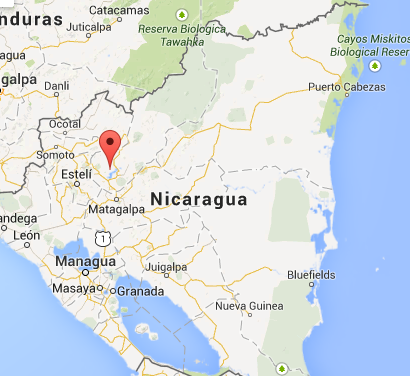Abisinia, Nicaragua
![]()
![]()
![]()
![]()
![]()
![]() Click on Programs to learn more about their work in this community
Click on Programs to learn more about their work in this community
General Information

| Population* | 9,870 |
| Number of Houses | 1,789 |
| Avg # of people per home | 5-6 people |
| Number & Percentage of Children |
0-5: 21% 2,072 children 6-14: 35% 3,454 children |
| Electricity | Only 50% of the community has electricity. |
| Location |
The community of Abisinia is located approximately 52 kilometers from the city of Jinotega, and 108 kilometers from the compound located in Esteli. |
| Municipality | El Cuá |
| Department | Jinotega |
| Health Center | Average condition |
| Distance from compounds | Approximately an hour and a half. |
| Road conditions | Brick road 40%, paved road 50% and 10% macadam. |
* Population does not reflect how many patients will be seen on Medical
Brigades as many people from surrounding communities come seeking
Medical Brigades medical attention.
Top Three Needs Expressed
• Contruction of at least 3,000 latrines
• Construction of a potable water system
• Houses
In this community they count on one center of education where they have two class shifts; morning and afternon shift. Elementary and secondary, besides 100 students that attend school on Saturdays. This is a central community for the population and students come from many nearby communities to attend this school.
The city hall of EL CUA has developed the water systems installed in the communities, but a big portion of this population does not have access to this service. So the people have to go to the rivers, streams and public wells to shower and wash clothes.
This communtiy has a health unit built by the government of Nicaragua through FISE. It was built about 15 years ago. It has 3 consultation rooms, plus a lobby and a pharmacy and there are two medical doctors. The difficulty in the health center is that there are no medications and often times the patients have to go and buy them in the city.
The main source of income is the production of coffee. They also grow lower rate grains and vegetables such as: cabbage, tomatoes, potatoes and onions. An important aspect of these crops is that the land that they are grown on are in the hands of just a few land owners and the rest of the population works as laborers for these landowners.
Besides the presence of the government, there are no other organizations providing any help within this community.